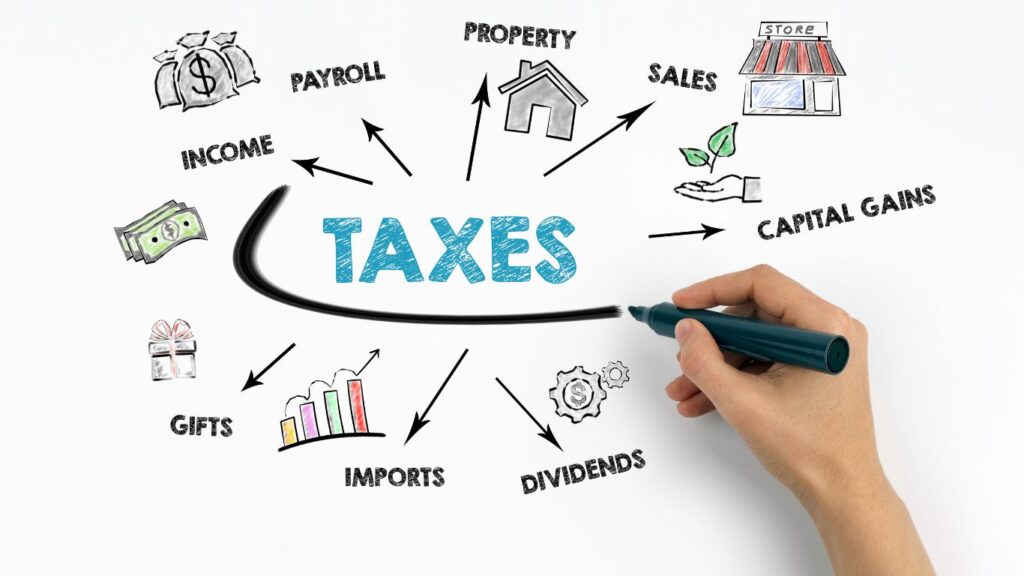Tax planning is an essential aspect of financial health, yet many overlook its significance until deadlines loom. This overview demystifies the basics, empowering readers with knowledge to navigate the complexities of tax laws and leverage opportunities to optimize their tax situation.
The journey through effective tax strategies begins with understanding foundational concepts and then diving deeper into specialized tactics. Let’s explore how strategic planning can reduce liabilities and enhance financial well-being.
The Pillars of Tax Planning
Tax planning, at its core, involves strategizing around tax laws to minimize tax liabilities. This encompasses more than annual tax return preparation; it’s about structuring finances in a way that reduces the overall burden.
Key components include timing of income, size, and timing of purchases, and planning for other expenditures. The optimization of retirement plans also plays a critical role, offering ways to defer income and capitalize on lower tax rates when possible.
Understanding the interplay between different types of taxes—federal, state, and local—ensures a comprehensive approach. Awareness of potential tax credits and deductions is paramount in ensuring that one’s financial maneuvers within the legal framework yield the best possible outcomes.
Savvy individuals keep abreast of current tax laws and regulations, recognizing that these can shift significantly with political changes. Regular consultation with tax professionals can provide personalized advice and strategies tailored to individual circumstances.
Strategies for Reducing Taxable Income
Contributing to retirement accounts such as a 401(k) or an IRA can lower one’s taxable income, thereby reducing the tax liability. These contributions serve the dual purpose of planning for a secure future while optimizing current tax positions.
Strategic charitable donations can also play a role, offering not only the satisfaction of supporting worthy causes but also potential deductions. Understanding the nuances of itemizing deductions versus taking the standard deduction is crucial.
Investment decisions, including the realization of capital gains or losses, should be made with an eye towards their tax impact. Tax-efficient investing strategies, such as the use of Roth IRAs or 529 college savings plans, can contribute to long-term tax savings.
Timing and Tax Implications
The timing of income and deductions can influence tax obligations. Accelerating or deferring income, based on current and anticipated tax rates, can result in significant savings.
Similarly, managing the timing of deductible expenses, such as medical procedures or charitable contributions, requires foresight and can affect taxable income.
Considering the potential impact of the Alternative Minimum Tax (AMT) is vital in planning, as certain deductions are disallowed under the AMT, influencing the timing and type of deductions.
Real estate transactions and their timing can also drastically affect tax liabilities, making knowledge of capital gains tax and potential exclusions critical.
Tax-loss harvesting within investment portfolios can offset capital gains, an example of strategic timing to mitigate taxes.
Life Events and Tax Planning
Significant life events—marriage, divorce, the birth of a child, retirement—can radically change one’s tax situation. Planning around these events is essential in optimizing tax outcomes.
For instance, marriage or divorce can affect filing status, which in turn impacts tax rates and eligibility for deductions or credits.
The addition of a child to the family introduces opportunities for credits and deductions, such as the Child Tax Credit and the Dependent Care Credit.
Retirement planning is interconnected with tax planning, with decisions on when and how to withdraw retirement funds having profound tax implications.
The Role of Tax Professionals
Engaging with a tax professional can offer insights and strategies that transcend basic knowledge. These experts stay updated on the latest tax laws and have the acumen to tailor advice to individual financial situations.
Choosing a tax advisor involves ensuring they have relevant expertise and a good reputation. Remember, while DIY tax software can be helpful, complex situations often merit a professional’s touch.
Forward Planning: Beyond the Current Year
Effective tax planning doesn’t stop with this year’s tax return; it’s an ongoing process that considers future years. This long-term perspective can unveil strategies that optimize one’s tax situation over decades.
Anticipating changes in income, either increases or decreases, and understanding how these changes affect tax brackets and liabilities is fundamental. Considering how life changes, such as retirement or changes in family composition, will impact tax obligations is also crucial.
Concluding Thoughts on Tax Planning
Tax planning is a multifaceted endeavor that requires diligence, foresight, and an understanding of complex laws. However, the rewards—minimized tax liability and maximized financial health—are substantial.
Embracing tax planning as a crucial element of personal finance management not only secures immediate benefits but also sets the stage for long-term financial success. With the right strategies and, when necessary, professional advice, navigating the tax landscape can become a manageable, even advantageous, component of one’s financial journey.
Understanding and implementing sound tax planning strategies is essential for maximizing financial health and minimizing tax liabilities. Whether through optimizing deductions, timing income and tax events wisely, or planning for life’s significant milestones, a proactive approach ensures you’re well-positioned to navigate the complexities of the tax system effectively. Regular consultation with tax professionals can further enhance your strategy, ensuring it evolves with changing laws and personal circumstances. Embrace tax planning as a vital component of your financial toolkit, and watch as it transforms your approach to personal finance management.


